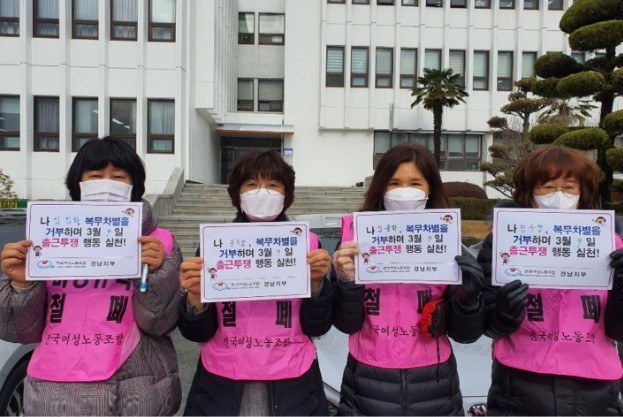Studying and Promoting Workers’ Rights in the Time of Corona
As the coronavirus pandemic sweeps across the globe, it exposes and intensifies deep-seated inequalities, with pressing implications for workers’ rights. Here at the Center for Global Workers’ Rights, we are tracking these developments closely, even as many of our immediate plans have been disrupted. We have postponed several events, including our Ninth Annual Spring Symposium. All Penn State faculty, students, and non-essential staff are now working remotely and teaching has moved online. We are grateful for the resilience and dedication of the staff, students, and faculty who keep our center and university running in the face of such adversity.
In recent weeks, many center faculty and Labor and Global Workers’ Rights (LGWR) students began research and advocacy projects related to the pandemic’s implications for working people. For example, Center director Mark Anner published a report on the impact of COVID-19 on global supply chains and the implications for Bangladeshi garment workers. The report received coverage in The New York Times and contributed to policy shifts among major global brands. Mark is now collaborating with postdoctoral scholar Jinyoung (Jini) Park and LGWR student Jafar Iqbal on a possible new study with the Solidarity Center
Jini is also collecting information on workers’ conditions and responses in South Korea, which will contribute to the Solidarity Center’s efforts to collect and share data internationally. Additionally, she is helping connect a Korean labor rights NGO and Burmese labor unions that represent workers who were illegally dismissed from Korean-owned factories. She is also reaching out to unions and factories in Myanmar and Cambodia in order to collect information on how their workers’ livelihoods have been impacted.
Center-affiliated assistant research professor Catherine Bowman is coordinating with colleagues at Migration That Works on a possible study of temporary migrant workers—including J-1s, H-2As and H-2Bs—about their experiences amid COVID-19. The potential study is motivated by concerns about temporary migrant workers who been laid off from jobs and are unable to return home due to travel restrictions. Also, there is fear that temporary workers who continue at their jobs may face inadequate safety precautions and wage theft from employers seeking to compensate for revenue loss.
Several LGWR students are also engaging in research related to COVID-19 for their courses, capstones, and assistantships. Jafar Iqbal is assisting Mark on his research on the impact of corona virus on Bangladeshi apparel workers, and will now write his capstone paper on this topic. Timothy Adekeye is writing a course paper that assesses the rate of preparedness of the Nigerian government in the fight against COVID-19, and the consequences for Nigerian citizens. Luis Medoza is writing a course paper on the impact of COVID-19 on workers in Peruvian mines, which are notorious for labor rights violations and remain opened during the pandemic. Luis is also assisting Mark on a study on labor conditions on Guatemalan banana plantations. Mark and Luis have begun analyzing the relationship between unionization rates and coronavirus safety measures on banana plantations.
Some center faculty are working on community efforts to respond to needs that have emerged due to the pandemic. Center-affiliated faculty Becky Tarlau and Manuel Rosaldo are volunteering with Centre County COVID-19 Community Response (4CR), a group of community members working to coordinate local mutual aid efforts. Through 4CR, they help coordinate a program through which local people request and offer support to one another, and help curate an online "Know Your Rights at Work" guide. They also established a partnership with the YMCA of Centre County to deliver daily lunches for the children of immigrant workers who have lost jobs in the restaurant industry.
We commend CGWR faculty and students for their engagement on these issues-the study and practice of global workers’ rights matters now more than ever.
